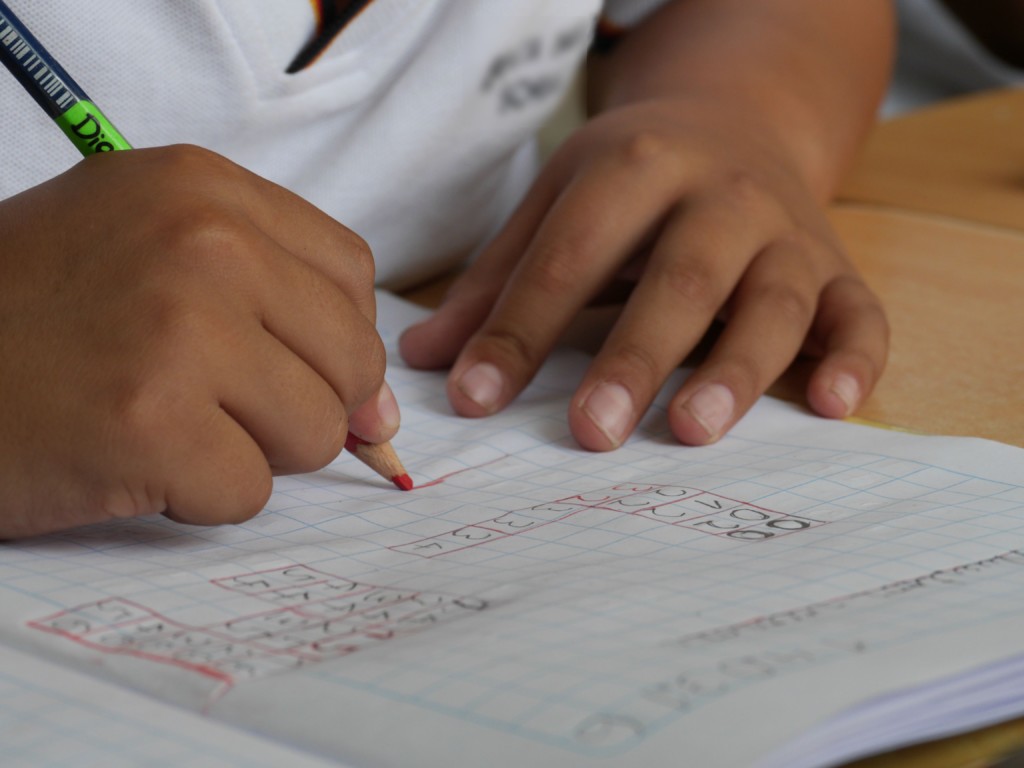
If you live in Rhode Island and have a child in school or about to enter school, you may have seen that the results of the first year of the Rhode Island Comprehensive Assessment System exam (RICAS) were just released. The headlines are all doom and gloom, focusing on how many students did not test as proficient in Math and English Language Arts (ELA), the two areas on the computerized exam. Many articles have also focused on comparisons with Massachusetts, since the new RICAS exam is modeled after the Massachusetts equivalent, the MCAS. Predictably, this will lead to conversations about what communities did best and worst, and what needs to be done to get these scores up. My very thoughtful and well-reasoned response to this is: Blergh.
Here are two things that are true:
- As a parent, child and family therapist, and member of the community I care very much about child development and the quality of education for the children in our state, and in our country.
- I do not care at all about the RICAS scores as a measure of how well our schools are doing.
There should probably be a disclaimer here to head off the protests of “but, accountability!” and “we need to make sure our kids are getting a good education somehow!” I agree with you. I agree completely that there need to be both objective and subjective ways to measure educational goals and to identify and correct gaps in what children are being taught.
Do I think the RICAS does that? Sorry, no. Did the PARCC, the test used prior to the RICAS, do that? Also no.
The main issue with tests like this is that they have not proven to be a valid or reliable way of measuring educational objectives, and have no clear ties to predicting academic success or anything else about a person’s future. In order for exam scores to mean anything, the test must be both valid and reliable. Valid means that the test actually measures what it is supposed to measure. Reliable means that the results are replicated when the test is given at different time points. The RICAS has now been given once, so there is no way to see if it is a reliable measure of how students in Rhode Island are doing in math and ELA. More than that, there is really no evidence that this test is a valid measure of how any given student, or school overall, is doing in math or ELA. This test is a measure of how well students and schools did on…this test. This one time.
What does it mean to be getting a “good education”? Think about this for a minute. My partial list of criteria includes things like developing confidence in one’s ability to learn, becoming an effective oral and written communicator, learning how to think analytically and problem solve creatively, developing social and interpersonal skills, understanding the procedural and organizational behaviors that support completing tasks, ways to find good information about things you might want to know, and developing an awareness of how the world as it is came to be, what one’s place is in it, and what its future might hold. And sure, fundamentals like basic math and language concepts along with art, science, civics, and geography. Overall, I believe a good education should provide the foundational skills that a child will eventually need to be a capable and independent adult.
How do these things connect with a one-time, computerized test? Even in the two areas the RICAS is meant to measure, in what valid or meaningful way does this assessment tell anything about a child’s ability with the English language or with actual useful and applied math concepts? Given all of the problems we know exist with standardized testing, it is a mistake to draw sweeping conclusions of any type about the relative strengths and failures of any student, teacher, grade level, or school based solely upon these scores. It’s an even bigger mistake to try to predict what this means about the futures of children being educated in Rhode Island, for better or worse.
So before we all panic and start calling for canceling art and recess and field trips in favor of drilling math problems that will increase scores next year for the sole sake of increasing scores, let’s pause for a second. Look at your actual child, and your actual neighborhood school and the actual people in it. Are we supporting our schools and teachers as best as we can? Are we making sure their school is a physically and emotionally safe, comfortable, and well-equipped environment for learning? How well are we meeting the basic needs in our communities to make sure all kids are coming to school with full bellies, rested bodies, and minds free from stresses that interfere with learning? Let’s start there, with things that we know actually support the ability of students to learn what they need to when they need to.
Let’s keep our efforts focused on creating educational goals that are comprehensive and developmentally appropriate, with the input of as many educators and child development experts as we can (and as few people involved with companies that profit off of testing as possible.) Only then can we create valid and reliable ways to measure if those meaningful goals are being met, with the purpose of connecting what our children are learning with what their future selves need to be aware, engaged, content, and resilient citizens of the world.
For now, if you share the goal of improving our schools, I encourage you to become more involved in creating the type of successful learning environment that all of our kids deserve. Whether it’s volunteering at a school or after-school program, supporting programs that give grants to schools for enhancing their curriculum, attending school committee meetings, or supporting important educational legislation at the town or state level, it’s up to all of us to invest what we can in our future in ways that will have an impact.












